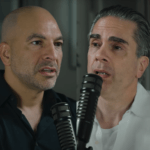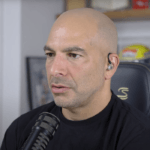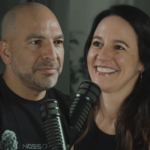In this episode, I sit down with my daughter to discuss the brutal death of George Floyd, and the aftermath we are watching unfold. Though I have no expertise in race relations, law enforcement, or police brutality, I do have some knowledge in the training of physicians, and it is that training of doctors that I’ve been thinking about lately as it may offer one small insight into this crisis. In this very short discussion, we speak about three types of errors in medicine (and medical training), how to distinguish between the two variants that are acceptable, and the one that is unacceptable. My question, ultimately, is if such a framework can be applied to law enforcement?
Subscribe on: APPLE PODCASTS | RSS | GOOGLE | OVERCAST | STITCHER






You are an AMAZING dad, and your daughter gives me hope for the future.
I’ll echo what the first comment said! You’re indeed a great dad and your daughter is a remarkable woman.
But thanks for all your podcasts on The Drive! While I can’t always follow all the science (I’m a choral conductor, just retired Professor of Music), I do my best and find it some of the most important reading (I usually read the Show Notes) of my week.
Thanks for all of this!
Great show! I have a 14 year old daughter and this made me smile. And of course cry. My husband is a social studies teacher in a high school and as a government employee they cannot encourage much politically activity, it must be primarily student- led. They can and do answer questions and talk about things as kids bring them up. They can share their own beliefs without “preaching” but it really should be a student- led approach. Have your daughter watch the PBS special released last year about Reconstruction. It was fantastic and heartbreaking. All about how the seeds for Black flourishing were planted but not nourished, and then ultimately stamped out.
Thanks, Peter, for your excellent work! I stumbled into your website because of the podcast with Dr. Michael Osterholm. Besides COVID-19, I’ve become fascinated with your Formula One. I followed that great sport in the 90s and lost interest after Schumacher retired (I am German ;-)). Now, I see that fascinating discipline with different eyes!
Thanks to you and your daughter for this 20 min. about racism and showing possibilities to make a change for the better. I’ve been learning so much. It touched me and made me feel sad and angry. But I am positive about turning down the walls of racism, starting with a reform of the law enforcement and jurisdiction. And parallel a ”reform” of everyday life.
I will support a non-violent protest march in Oceanside, CA, on Sunday.
Take care
Thorsten
You pride yourself of been data and fact driven. This post is driven by your emotions therefore does not contribute to the discussion. Your advice is totally not practical. Policemen gets less than 10% of pay compared to a doctor so getting them out based on normative errors will leave you with no police on the street and you and your children will need to defend yourself from the tugs. So totally utopian getting with the crowd post. Dr. Attia please stick with medicine.
I’m not sure money has anything to do with integrity.
I’m with Bonnie, simply amazing! Thank you so much for sharing your conversation with Olivia and for all of the medical information and perspectives you put out there. Invaluable!
I am only just catching up with the podcasts and this podcast is amazing and thought provoking – I also echo the first comment. Thank you for sharing it.
Peter and Olivia,
I appreciate your conversation. I visited Doha, in Qatar, about 2 years ago. A 4-part historical and cultural museum complex had just opened. The largest section was devoted to the history of slavery in Qatar. It started with a video overview of slavery through time and across the world, which put slavery in their country in context. It was amazingly well done.
It appeared (to me, who is mostly ignorant of their history) that it was a frank, open and honest presentation. When they ended slavery, it appears that they incorporated ex-slaves into their society as full members. I think that the multi-racial makeup of their citizenship made it easier for the ex-slaves to meld into the population. At the time, the nation was poor. Now, gas and oil under the sand has made the nation – and the populace – wealthy. All citizens get a share of the profits from the government. All citizens.
It is not that Singapore is a totally inclusive nation – there is now a huge immigrant worker population that is bound by strict rules and benefits. Medical care is available at a subsidized rate to all residents, including immigrants. But immigrants cannot remain in the country after they retire from work; they have to leave. Even if they were born there and have lived their entire lives there. Even if their children and grandchildren continue to live and work there. It is quite the burden for the population of immigrant workers, many of whom have never lived anywhere else. But on the other hand, if they were allowed to stay, as they age, they would most likely need to use resources that belong to the Qatari citizens.
Like slavery (ancient and current,) the issue of immigration is hard, all around the world.
Thank you for the conversation. It was thoughtful and thought provoking.